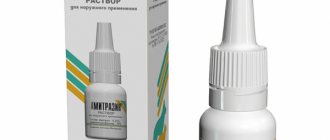All cat owners love to be affectionate with their pets, but sometimes this becomes impossible due to the unpleasant odor from the animal’s mouth. If this situation occurs once, then there is no need to worry, but if the cat’s breath stinks with enviable frequency, it is better to show the pet to the veterinarian. The oral cavity is the top of the gastrointestinal tract, and underneath it can hide an entire iceberg of diseases and ailments, which are signaled by bad breath in a cat. The causes of this phenomenon, called halitosis, can be varied, and without a doctor it is impossible to understand them.
Normal and abnormal odor from a cat's mouth
There are many shades of unpleasant and putrid stench. Strictly speaking, cats cannot smell like anything at all, since they are predators. Most often, they smell of the faint aroma of the food they consumed. Bad breath in a cat becomes pathological when it lasts too long or gives off sharp and unpleasant notes. Usually this indicates gastrointestinal disorders or diseases of the oral cavity, but there are also particularly “fragrant” brachycephalic breeds:
- Persians, especially extreme sportsmen;
- exotics;
- British;
- Scots.
Of the cats with a normal nasopharynx structure, the stench most often emitted by sphinxes due to caustic gastric juice and fashionable Maine Coons with Abyssinians, in which overgrown gum tissue sometimes becomes inflamed.
In kittens
Typically, kittens have not yet acquired gastrointestinal diseases, so their bad breath appears due to injuries to the gums and palate or excessive growth of bacteria during the process of changing teeth.
In case of injury, the mouth ceases to smell as the tissue heals, and in the second case, the odor evaporates when the replacement of milk teeth with molars is completed.
In adult animals
The average age is considered to be from 1 to 8 years. a cat develops bad breath in this age range
- infections of various etiologies affecting the oral cavity;
- diseases of internal organs;
- feeding cheap, low-quality food;
- various dental problems: caries, plaque, tartar;
- neoplasms of mucous membranes;
- lack of oral hygiene.
Each of the listed reasons is divided into a dozen more nuances, therefore, if you smell the stench from your pet, it is better not to guess, but to contact a specialist to solve the problem
In older individuals
Over the years, your pet does not get any younger, and in old age it may develop a variety of chronic and other diseases. The problems of mature cats include diseases such as:
- periodontal disease;
- kidney and liver diseases;
- hormonal disorders;
- stomach ulcer;
- diseases of the endocrine and cardiac systems.
You need to make allowances for age and not judge your aging pet too harshly, but it is better to check everything thoroughly to know that the stink does not relate to anything vital.
Possible complications
If any disease is neglected, it can lead to serious consequences. This is especially true for such complex systemic diseases as endocrine and hormonal disorders (diabetes, thyrotoxicosis, and so on), diseases of the digestive system, liver and kidneys. A number of diseases threaten the cat with death.
But even damage to the gums and teeth can cause irreversible consequences. The cat may lose teeth, which will cause disturbances in its nutrition and lead to complications with the digestive system in the future.
Common Causes of Halitosis
Very conditionally, the causes that cause halitosis in cats can be divided into four large subgroups. The owner is not always able to diagnose it on his own - sometimes the help of a veterinarian is required.
Diseases of the mouth and teeth
Dental diseases can be both serious and easily solvable conditions:
- Stomatitis and gingivitis are inflammatory processes of the gums, palate and inner surface of the cheeks.
- An abscess is a closed, encapsulated abscess formed as a result of the entry of a foreign body that provokes inflammation.
- Changing teeth in a kitten can cause bacterial growth and, as a result, a bad odor.
- Plaque and tartar can cause halitosis.
These problems are easily treated, especially at the initial stage. Plaque and tartar can be avoided through prevention, that is, regular brushing.
Diseases of the nasopharynx
Halitosis is a common accompaniment of polyps in the nasal passages. Once they are removed, the stink disappears.
Mustachioed friends also suffer from such human diseases as sinusitis and sinusitis. The symptoms are similar to a runny nose: discharge from the nose and eyes, frequent sneezing, and sometimes the animal’s temperature rises.
Viral diseases can also manifest themselves, which often cause the death of a pet. At the first alarming signs and lethargic state of your pet, do not be too lazy to go to the veterinarian.
Problems with internal organs
Diseases of internal organs are more common in older animals. Usually the stench occurs when there are problems in the gastrointestinal tract, tumors and neoplasms in the liver, stomach, lungs, etc.
Diabetes in older cats does not promote fresh breath, nor does reverse reflux or pneumonia. Severe conditions require mandatory treatment under the supervision of a specialist.
Parasite infestation
Even an animal that does not leave the apartment should be dewormed (that is, drive away worms). People can carry parasite larvae on their shoes, and if a cat likes to feast on fresh meat or raw river fish, worms can be waiting for it there too.
For individuals walking on the street, veterinarians set a deworming period once a quarter. It is enough to worm your pets once or twice a year, and always two weeks before the annual revaccination. This must be done, because if there are worms, the vaccination may not work or cause serious damage to the pet’s health.
Can cats brush their teeth?
The formulation of the question itself looks somewhat funny. Of course, in the wild you will not meet a tiger with a toothbrush in its paws. And if he does have one, it will be more likely to chew it up. Cats are not particularly different in their habits from their wild counterparts. And only restless cat owners can subject them to an unpleasant procedure. Agree, wrapping a cat in a sheet and brushing its teeth with the help of another person, while it screams, scratches and tries to escape, is not an activity for faint-hearted owners, or faint-hearted cats. Although you can find cute videos on the Internet where a cat willingly bites a toothbrush. I wonder what the cat’s owners used to smear such a brush with?
Types of unpleasant odor depending on the cause
Trouble can have a different nature. Depending on the shade, you can suspect a particular disease in your pet and get tested specifically for it first.
Fish
A weak amber from raw fish is a signal of oral diseases. This type of breathing occurs in purrs whose owners are not concerned about their hygiene, as a result of which the cat’s breath smells like fish. Tartar, inflammation of the gums and subgingival tissues - all this negatively affects the aroma emanating from the pet.
Putrefactive
If your cat's breath smells like rotten meat, the range of possible problems is wide. The most harmless one is unsuitable or low-quality food. This issue can be resolved by adjusting the diet: replacing food or type of food, enriching the diet with nutritional supplements.
It’s worse if the cause of the rotten stench is ailments of the digestive system: gastritis, ulcers, tumors, obstruction, infections - all these conditions require treatment, sometimes surgery. A helminthic infestation smells the same, in this case the animal is given anti-worm medications twice in the required dosage.
Acetone
If a cat does not digest carbohydrates due to the fact that the body produces insufficient amounts of insulin, then as a result of their breakdown, ketone bodies and acetone are formed. Of course, we are talking about diabetes. This is not to say that the smell of acetone is unbearable or completely unpleasant, but it is a very specific marker of a systemic disease. In combination with constant thirst, we can talk about diabetes with confidence. Therefore, pay special attention if you smell acetone on your cat’s breath.
Ammoniacal
If you smell ammonia in your cat's breath, there is a possibility of kidney problems and various forms of kidney failure. Urine production in the kidneys decreases until it stops completely, and creatinine and urea accumulate. Other signs:
- frequent urination;
- thirst;
- the pet avoids touching the kidney area (sides and stomach).
Kidney failure can occur due to hypothermia, inappropriate food and type of nutrition, and infections. In the early stages, the cat can be helped, but the disease is difficult to detect, and once symptoms become apparent, the condition is usually incurable. You will have to carry out maintenance therapy for the rest of the cat's life.
Sweetish
A sweetish, but no less nauseating odor, similar to the stench of rotting meat, comes from animals with liver diseases. The liver filters and neutralizes toxins, and if it does not work correctly, they accumulate and poison the entire body. If your cat’s breath smells like sweet rot, and the whites of the eyes and gums have a yellowish tint, then you and your pet are heading straight to the veterinary hospital.
When to see a doctor
In the absence of external causes of foul odor from the mouth, only a veterinarian can determine the problem.
Possible treatment options:
- remove the foreign body;
- remove tartar;
- teeth are removed;
- carry out treatment of underlying diseases.
Also, depending on the cause, the veterinarian will tell you what to do next. A special diet, treatment of the oral cavity with solutions, and the use of special pastes for cats are prescribed.
Symptoms associated with the problem
Rarely does the stench appear on its own. Usually it is accompanied by various symptoms, which are noticed by an attentive owner. Based on the overall picture, one can assume a specific disease and direct efforts to identify it. This will save time and allow effective treatment to begin as quickly as possible.
Suppuration
The presence of purulent discharge requires determining the location of the abscess. With current pus, most likely there is a ruptured abscess. It can be caused by injuries to the mucous membranes, pulpitis, caries. Purulent processes require rinsing and treatment with antibiotics in most cases.
Brown discharge
If you don’t know why your cat’s breath stinks, but you see brown discharge coming from its mouth, the first thing you need to do is rule out injury. Ichure and caked blood have a brown tint.
If there are no injuries, but there is discharge, then it can be assumed to be calcivirosis. The settled virus causes the appearance of bleeding ulcers and ulcerative stomatitis in general, and its companions will be a brownish discharge and a putrid stench.
Excessive drooling
Increased salivation is also a sign of stomatitis. If your still “dry” cat has suddenly become like a bulldog in terms of drooling -
look for ulcers on the mucous membranes. This could be either ordinary gingivitis or dangerous calcivirosis.
Dental problems
Animals have the same dental problems as people. Pulpitis, caries, abscess, tartar - all this can cause an unpleasant odor to come from a cat’s mouth. When kittens replace their baby teeth, wounds remain in the place where the fangs fell out, and bacteria can multiply in them. In mild cases, rinsing helps, in severe cases, you need to go to the doctor and ask to be prescribed a course of medications.
Diagnosis and treatment of halitosis
The surest way to rid your pet, and therefore yourself, of the stench is to find and eliminate its cause. After recovery, it disappears, but, unfortunately, cure is not always possible.
Visit to the veterinarian
If you notice that your cat's breath smells and you can't figure out why, the best thing you can do is take your cat to a professional. The veterinarian will check your pet’s mouth for damage, dental diseases, and ulcers. If your furry friend has developed a stone, the clinic can clean it with ultrasound under sedation; A teenage cat will have his baby teeth removed, which are interfering with the proper growth of his molars.
If the reasons are not external, then the doctor will suggest taking tests, and in some cases, doing an x-ray to find out for sure what is happening in the cat’s body. Based on their results, adequate treatment will be prescribed that will bring maximum benefit to the pet, and if a complete cure is not possible, at least alleviate its condition.
Help at home
Before visiting the veterinarian, in some cases you can help your pet yourself. For stomatitis, you can wash the sores with a weak solution of potassium permanganate, alcoholic chlorophyllipt or chamomile decoction. In case of injury, the owner can treat the wound with antiseptics.
Sometimes simple cleaning of incisors and canines helps if plaque is the problem. To do this, you will need a scaler or special veterinary wipes - you can buy them at a veterinary pharmacy.
Special preparations
If you are bothered by your cat's bad breath, you can use special aids. This:
- chlorophyll tablets, which inhibit bacterial growth;
- liquid for adding to drinking water;
- gels, sprays and cleaning pastes;
- tooth powder;
- antiseptic treatment with chlorhexidine;
- folk remedies - a soothing solution of chamomile or horsetail.
Before using any product, carefully read the contraindications, or even better, consult a veterinarian. Allergic reactions are possible, as well as the futility of measures - if the causes are hidden deeper than the oral cavity.
Treatment of kittens
Treatment for a kitten should be prescribed by a doctor, since due to its low weight, a particularly careful calculation of the dosage of drugs is required. When changing teeth, the doctor will determine whether removal is necessary or you can wait until the tooth falls out on its own, and will also adjust your diet.
If you have viral or oncological diseases, you cannot self-medicate – days, if not hours, count. The pet will need prompt and qualified help to save its life.











